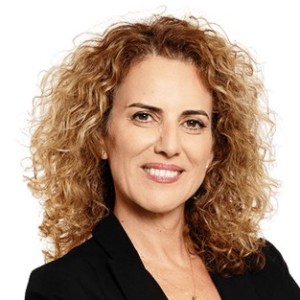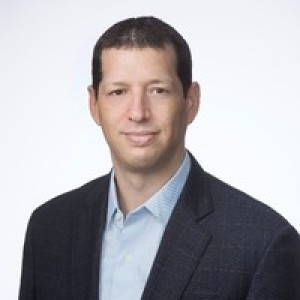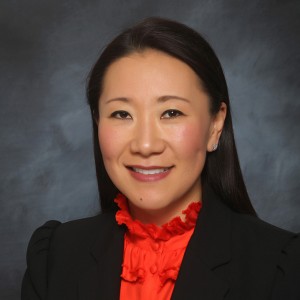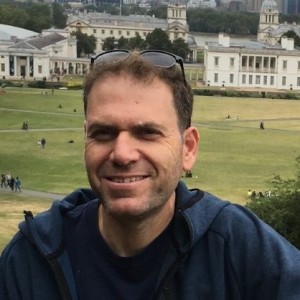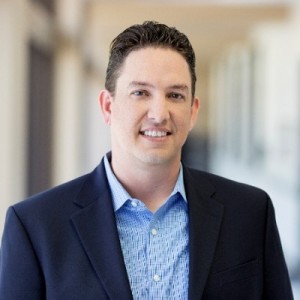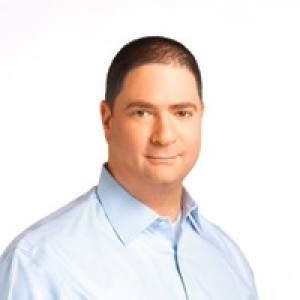Israel: Past, Present & Future of Medtech Innovation in StartUp Nation | LSI USA '24
Tal Wenderow 0:05
Thanks, David, Scott, Joe, and everyone, they all got to thank you. And we got the hardest job. Now we need to speak something wise about Israel. But I'm excited to be here we have a great panel, so will not go through introducing everyone again. But I want to we'll go back to the movie and about the vintage if that's the right thing to do, which is also true to medtech, not just Israel. But let's go back to history, kind of why startup nation and maybe David, I'll ask you, because you have a unique opinion going MD been in the US for strategic company investor and then go back to a CEO of a startup company, innovative startup, why Israel have so many startup right meaning in the move, we saw, the numbers are astonishing,
David Israeli 0:47
difficult to nail down the exact secret sauce, and I won't repeat what a lot of you already know. But I would say what I've encountered is really a lack of accepting the status quo. It's a really, it's a very can do attitude in terms of the culture, people continuously identifying unmet needs, identifying new technologies, trying to match new technologies with unmet needs. And I would say that looking at the entrepreneurs that I've been involved with, it's really that continuous pursuit of bettering, technology bettering people's lives. And I would say, I will end with only one comment, we're actually seeing a lot of migration of innovation and entrepreneurs from the traditional high tech that maybe Israel is better known for, in terms of the semiconductors, internet, going back and trying to do good and be involved in the healthcare industry. And I think that migration of talent from the traditional tech to healthcare is also helping us thrive within that sector.
Tal Wenderow 1:56
Yeah, that makes sense. It comes with some challenges, obviously not accepting the status quo, and will evidence for running Israeli companies. Eli going back to you not back, but going to is you work in the US as an investor in golf, right in private equity. And now what we see is that mindset change, not going to as well with the lesson you've learned from the US on innovation.
Hila Karah 2:20
I would start with the fact that Israel initially was innovative from necessity, actually, more than anything else, we had to survive, and we had to do well, otherwise wouldn't be there. And then it's evolved from being a very small community of enterpreneurs, or trying to survive into understanding that the local market is very small. And we have to approach the world, the global market and to do better, and from a small island with becoming a big tanker that just pretty much sells across the world and provide solutions, not only today's value ecosystem. So after spending about 20 years in the States, investing in different technologies and biotech, coming back to Israel was just natural to see that the innovation and the growth is coming from within, and the world can benefit from it. So bringing the world in and taking us outside. It's something that Israel is very good at, and continuing to be very good at, even during the current times. So I think it's going to be just even better and better and exciting years ahead of us.
Tal Wenderow 3:27
Increased from your perspective, you bought companies in Israel, you partner with companies that probably show you have some horror stories about walking with Israeli, but we'll keep them to post panel after a drink. How do you see that meaningful innovation ecosystem? In Israel? Yeah,
Chris Eso 3:42
I mean, I think the the word that you said, right, there is ecosystem. And if you look at anywhere else in the world, that ecosystem isn't connected. In Israel, it's completely connected from the government, from the talent from the investment side, from the strategics. Everything works in concert together, and all for the good, as David has said, for patients, right. And it's all about driving that forward. And so, to me, that's why Israel is so special. You know, you heard Mikhail talk about on the video about after obviously, the end of last year, the challenges and now that community has come even tighter together. I couldn't imagine how them being even tighter than they were already. Right. And so it's that spirit. It's that entrepreneur illness. It's that mindset that they win together. And they work together to order to solve the challenges of the world.
Tal Wenderow 4:45
And I'll just keep going to Jeanne and David mentioned you bought Pvt. 20 years ago, which is a really long time I remember doing the first case in France that was actually in rumba Medical Center. How did you see PVT evolve from an IT WAS perspective you mentioned to me When we did the briefing before that it's part of your product lifecycle. How does it work? Is that
Jinny Lee 5:05
Yeah, so it has been a long time. So 2004 I mean, we still talk about an acquisition of PVT, but it has been integrated. So 2004, the company gets bought, we held on to gratefully, every employee that was a PBT. So I think kind of to what Chris said, there's a lot of compounding that happens, right, there is concentration of information insight. And I, I'm a strategy person too. And I have that whole saying that, you know, culture eats strategy for whatever meal. I think it's true. And it's a lot of it is the people. So when you take a technology that is just unique. Most people thought it would fail, but you had a group of people who thought it couldn't. And then you have a company like Edwards at the time that knew that patient group. And the combination of the two was an explosion. So from 2004, we renamed the company because we've had a couple of really exciting acquisition and it's been integrated. So that story of let's do PVT again, is in our muscle. So as you think about other companies that get acquire, we hope to keep everyone and I think we renamed the company, the group in Israel to EIC Edwards innovations that are Israel Innovation Center. So it goes to show just how much we mean that we need the technology. We need the people, we need the infrastructure, I kind of laugh, that startup nation, I don't think of Israel as startup nation. Because if it were, I mean, look around this room guy, a lot of cool startups here. It's just that you think about how much that Israel has been able to offer, as Chris said about the infrastructure, the government, etc. So the ecosystem is miraculous. And I'm glad to have been a part of it from an auditors perspective, very beginning.
Tal Wenderow 7:05
You're in Israel more time to meet you. Which is, yeah,
Jinny Lee 7:09
I'm jealous. Yeah, I mean, I do, because so here's a little fact for this small room here. My husband is French. I've been to Israel many, many, many more times. And I've been to France, and I go to Paris a lot. So goes to show, you know, it's an important place. Remember, COVID, when COVID happened, we tried to figure out how to get to Israel. And about a year after the full shutdown, we figured out how to go. And it was very hard. But it was so important. And two weeks, three weeks from now, I'll be back. So it's part of not just a high I gotta go see cool. Startups. Our team is there. One of the folks on my team works in Israel. So it's, it's part of my team. So we got to be there.
Tal Wenderow 7:53
That's amazing. Show you run an incubator, right? So we spoke about government, we spoke about ecosystem, you probably see founders that are coming not even from healthcare. How do you assess that ecosystem, when a founder comes to you, from a different disciplinary have a crazy idea, and you need to fund it?
Shai Policker 8:12
Yeah, I think that we're really a good example of that ecosystem. We, we run an incubator that is supported by the Israeli innovation authority. It also is well connected to international strategic partners, and is ut utilizing the talent and the intrapreneurial spirit of, of engineers, and physicians in Israel. And they're all this all comes together and venture creation and building up of companies for you know, for the last for the last few years. And we definitely see those. I mean, there are mature areas of innovation in Israel that are not medical, as you may know, in communication in cyber, and it's nice to see some of this talent come to us when they want to do as David mentioned, something which is impactful, something that will really change the world rather than, you know, maybe add a feature to a cell phone. And this is where we are and the the collaboration that we have with the Israeli innovation authority. This is really a very good example of a program of a government employees that are that really understand innovation, many of them come from the world of VCs, and the communication with them is very open. It's very flexible. And it's I think this is a unique and unique situation and also something that gets improved over time and change keep changing. And that's also some I think, part of the of the secret sauce of never stand still and always, you know, think how to do something a little bit. A little better. You know, there was in the movie. Great movie, by the way. There was some quotes from Shimon Perez. And I just jumped into my mind that there was another quote from him, he was asked, What do you think is the most important thing that the Jewish people have brought to the world? And he said, I think it's the, it's the feeling of dissatisfaction of the status quo. And I think this is a really cool and anything he said that in the in the positive way, where there is really a lot of people of thinking, you know, even when things are doing okay, how can I make it even better? So?
Tal Wenderow 10:33
So true. So, Chris, going back to what have changed, right? You and I meeting in the ICI for last 17 or 18 years, I think, and I stayed in Boston, but you see people like he loved David, going back to Israel. But how did you see that ecosystem grow and change over the last decade? Yeah,
Chris Eso 10:51
I mean, obviously, there's a desire to give back to the, to that ecosystem and to that community, for for what it is offered for them. And so you do see people kind of coming back and, and developing companies, they're building, you know, new new businesses and new technologies, so that they can actually give others the opportunity that they once had to ultimately, you know, go and experience some parts of the other world and bring that knowledge back to to Israel. You know, I, the way I look at, at kind of, you know, all of this is Israel, and the in the startup communities there are, they have that can do attitude, but they also do it on a very cost effective and efficient way, in order to actually get to inflection points to decide whether to continue on or to pivot. Right, they don't ever stop, they pivot and think of a new way of addressing the same challenge or issue. And so they're constantly thinking about it. And so that that knowledge that they gained from going outside of Israel and bringing it back adds to that continuous have that ecosystem.
Tal Wenderow 12:08
Yeah, and, and when you look into that is companies do pivot, right. And it's hard, because if especially for founder, you believe in what you do all the time to pivot is really hard or even change positioning of a company and all that. When you look into today, maybe Hello, David, whoever wants to answer What's the biggest challenge today in Israel, right? I mean, obviously, every medical device, its funding funding, funding that reason we're all in the other side trying to do speed dating or 15 minutes intervals. But forget about the macro right now. What's the biggest challenge in Israel right now, when you establish company with David is going to Pivotal, even startup early stage or Gila when you invest in companies.
Hila Karah 12:52
Challenges, we have plenty of those in Israel. But I think that the one in the core thing that we feel currently is the kind of the disconnect a little bit from the rest of the world, to what we actually create and do in Israel. I think that especially medical devices, we've seen it going through turns, anywhere a little bit out of favor in recent years. But I think that the innovation that comes up right now need to be recognized need to be cooperated with the rest of the world. And I think that's one of our challenges. I think the second thing is, obviously, it's always been a challenge, but funding Israeli companies within the understanding that it's not for the local market, it's actually everything that is being innovated in Israel is going to the global market. So those are solutions that we reach out to the global markets, we see the needs outside of Israel, and we are able to be thinking out of the box and creating the solutions. And that's not always being recognized by people that actually not part of this ecosystem. And the last thing, I think, is the talent. We have Israelis that have dead companies have, you know, succeeded, leaving the country coming back. And those are the resources that we need as management that is very experienced, I've done the capital markets understand what the world needs is for understand go to market and bring that back to Israel. So I would think that this will be the challenges that we are facing currently. David,
Tal Wenderow 14:25
you run, Pivotal, starting a pivotal in DFS also as well. So you're flying back and forth. You have a team on the ground. How does that work?
David Israeli 14:33
So for the early clinical work, we we did decide to support the cases from Israel and so we're flying back and forth. We are we also accompany the pivoted. I won't go go through the full history of magenta, but we do have the privilege now and it is a privilege to work on an indication that is quasi elective. So we have the 48 to 72 hour advance notice where we can actually get on planes not surprisingly we do thoroughly feasibility study in the New York metropolitan area, because there's so many flights back and forth. And it allows us to be there. Obviously, when you scale up, and it's one of the challenges you were asking me before about the challenges, I think one of them related to Israeli companies is sort of the discipline of process, which helps us a lot early on in the innovation process, it actually hurts us a little bit as we need to prepare for scale up, which is all about discipline and process orientation. And I've been contemplating this for a while, but certainly our definitive plan, and it's part of our fundraising strategies to build a team in the US to manage a pivotal study locally. at that scale, you cannot do it from afar, it has nothing to do with the current situation in Israel. It's just the practicality of managing a pivotal study from 7000 miles away, which is just not doable.
Tal Wenderow 15:55
Jenny, did you see the same challenge and it was about moving from that innovation started at everyone and making coffee in the same time to design a part to a process organization that knew how to develop art,
Jinny Lee 16:05
all of it's super hard, but I do think focus helps. So you may try to sequester one group to work on something, and another to work on something else. And I think part of that become, there's a challenge to that. Because if you're an innovator who started early, you want to keep going with the program, right? But you have to assume that maybe that skill set isn't maybe great. It's kinda like relay racing, right? So the first runner really isn't maybe the best at second or third. And I do think it's a relay. And I do think that you have to find what works. What's worked for us is taking the innovation, bringing a team here in Irvine, and if it's manufacturing, we've got places all over the world as well. And then connecting the two and so timezone, we work through it, but find the metal to that is the patient. So you've got to use those kind of foundations to align people, I think sometimes we get so carried away with technology, someone's like, Hey, I got a really great opportunity, we got to fix ABC. But if you've been fighting really hard and saying that a patient population has absolutely no other options you want to hold to make perfect. And I think this is where if you are working with engineers, that's a good conversation hub. So how do you what part do you solve? What part do you hold, and then the trust to keep that loop going, and a lot of that becomes an information sharing, so rooted and how we think about this is we bring back the clinical, the learnings back to the team. And then we sort of honor the different parts and the trust that we have. But it takes practice. And I think each team goes through its process. And it's like, anytime you join a new company or a new project, it takes a couple months. But I think really, if you're in it for the long run, you kind of you realize that that is what it takes. And you kind of keep that hopefully with the end results. And we've seen it by doing that we've seen great results. So kind of stick with I think at the end of the day, what you're great at. And if you can kind of bypass the stuff that's kind of fun, that you think you might be good at. Right? There's that discipline part.
Tal Wenderow 18:25
Sure. You brought Boston very early on to incubator, I know Chris and motronic did the digital health in northern Israel. What's your rationale to bring them soil to that innovation phase? And other questions, I'm too afraid that they will know everything and then you cannot sell to Chris or to Ginny.
Shai Policker 18:42
Yeah, it's it's a good it's a very good point. And I think there is a lot of awareness on the what David and Jeanne were discussing about the latest stage of the company, where you need that, you know, across the ocean collaboration, and how to resolve it, and the maturation that comes with that. But we are trying to also address that early on when we just are starting a project. And what we were seeing is, you know, very large amounts of extremely talented engineers, coming with amazing technologies for indication that nobody is interested in and are irrelevant to the US market. Or maybe I'm exaggerating in some cases, but you could find that, you know, they were not tuned, they were close, but not really to the point. And the fact that what we found is that those early discussions with Boston but also with others, we have a pretty wide collaboration now with with strategics. It is a tremendous investment from them from the strategic side for very little, let's say, a time investment, and actually very little money as well in that stage. You can really tailor something to your unmet needs. And once you get this openness and this kind of process of working with the strategic and there are challenges of community communicating between the startup ecosystem and strategics, I think you can do a lot done. Challenge challenges that kind of can be overcome. And I think that you can gain really a lot. And I think that this is something I would recommend to, you know, any strategics out there in the in the crowd, when you're discussing with Israelis, you try to address the kind of the grassroots of the unmet needs and guidance, and it's not always funding that they're after, sometimes, if you give them the right advice, it will be worth much more than, you know, the first million dollars. Maybe they will not agree, but depends who you ask. Right?
Tal Wenderow 20:58
So let's move a little bit. I'm just looking at the time here. Towards the end, there's a clock here. You have another final way. Chris, you also invest in companies directly. And you have an innovation center there. How do you decide meaning where to put the money, where to put the resource? How to share that? When you look into innovation? Yeah,
Chris Eso 21:18
I mean, so when we look at, you know, the region, right, we we obviously want to continue to make investments there and grow our footprint in Israel. And so when we look at both our organic investments that we're making, we are evaluating whether we're making investments and expanding our teams into Israel, or in other parts of the world. Is India, us, wherever it is China, right, that's all part of the calculus for us is where is the right skill, set the right expertise that will deliver what we're trying to solve for. And we then obviously, on the inorganic side, we're looking at how do we use our existing team in Israel, to help us when we're doing diligence in Israel, and understand that subject matter expertise, to do that type of work in in country, and then add that capability to our skill set within within Israel. And so it is a multifaceted kind of, you know, process that we're looking at, in evaluating in terms of building out our skill set there. Now we have I think it's close to 2020 500 employees in Israel. That's mostly through acquisition, Mazhar given technology given imaging, cat, you know, Catholics, we basically are our employees of ours almost just a matter of time. So we got to work through that. But you know, that obviously, there were other acquisitions that we did, along the way, neutrino and etc, that we've added different capabilities, all based on their capabilities and their knowledge and technology, and how they're adapting it into the into the medical field. And
Tal Wenderow 23:11
when you look at the way I look at innovation, Israel, it's kind of falling. The leader, there's a good company did stent with the first one, then everyone to cardiovascular, and then everyone shift to digital health, right? Everyone's shift to whatever the trends is. And it's question to everyone who wants to ask is the answer. What should Israel focus on innovative? Is it next generation product? Maybe like you're doing, David? Is it new therapy, new innovation is breaking the status quo and things that you don't know how to solve right now? How do you guys think about that?
Jinny Lee 23:46
All right. If this is a call for what everyone should be working on next, I think part of I will go back to what's look, I guess, closely on one of the things that you want to solve. I mean, that video showed some alarming things around stroke, cardiovascular, I mean, I think those are still really important things. I think if you think about trends, maybe you guys set them, maybe Israel sets them, maybe I haven't seen things be a fad. If it were, then I would question it. But I do think that you lean real heavy into the areas of focus. And so keep doing that. I mean, I think it's all about the wealth of experience. And so if there is talent there continue that talent. I'll say, things that may not be things that I would, I'll go out on a limb here, for example, manufacturing, I don't know if someone left there. I don't know if that's an area of focus, per se, because there's other areas and other regions that might on the level of innovation might be better. All those things you said yeah, they're super important, digital, all of those aspects are really key but I think it's a lot about setting the right trends and where where you go deeper where you look at the pay Question where you look at those fundamental needs, and making sure to, I don't know, double down triple down there, because that's really where the heart is. So I tend to want folks who know things to go deeper in them, versus, hey, let's try something different. I have been in this space for, I don't know, close to 30 years, there's something about I can spot certain things, right. And I've got teams who are great. And over the course of time, their gut gets better. And a lot of that is what what we want. So if you think of the startup nation that had the gut for it, and the resilience and I say, trust your gut more than maybe, I guess, asking me right,
Tal Wenderow 25:39
want to say something? Well,
Chris Eso 25:40
I was just gonna give, obviously, there's a lot of work being done kind of in the imaging world, right. But I think that that that is a core competency of Israel, that actually can have major and material impact on a global basis, having that next gen of imaging technology that can democratize all of the therapies that everybody's working on, either through image guided through AI through data, whatever, you know, enabling technology there is, I think there's a core fundamental expertise in Israel, that can really be leveraged on a on a global basis for everybody's benefit.
Tal Wenderow 26:27
Nothing from Israeli folks.
Shai Policker 26:29
Maybe one a little bit different aspect is, I think that something that I see is maybe moving a little bit earlier into disease states. So you know, people were, there is a lot for many years talk about prevention, of course, and treating the patient when there is already a crash. And I think there is awareness, and there is understanding also the economic value, and not to mention the clinical value of some earlier milder intervention that will prevent the kind of the catastrophe. And that's also kind of a general area we are looking at in different disease states.
Tal Wenderow 27:06
So in the last couple of minutes, switch focus, right, I'm actually in Boston, but to know the other side of the pond. But what does Israel needs on the US side? Right, what support does it need from the ecosystem to continue generating innovation to continue to generate startups? Obviously funding, but that's true to 95% of the people here, whether the funds or startups, right, it's the only one strategics don't need funding. But how do you guys think about that, David Frum.
David Israeli 27:34
I know you wanted to skip funding, but I want to spend 30 seconds on it. Sure, it's trivial. Everybody's looking for funding, but but I will just say is a message to the fans here in the crowd. And certainly looking at our own investors, I think we need to find better ways of making sure that there is no concerns about investing far away from the US. And it's not about geopolitics, it's not about where we are we know there's I know that there's the prevailing joke of some funds that prefer not to invest outside of their zip code. And so certainly Israel is not in the zip code of, of Sand Hill Road. But I would encourage us based funds to be a little bit more open minded about that. And so I think that's, that's an important message. The other one that I would say is getting back to what I intimated before about the process and discipline. Certainly some of the benefits of aligning Israeli startups with the strategics. And with the sophisticated healthcare investors in the US, is that awareness of scale up early in building the companies making sure that both the talent and the physical infrastructure is built in order to support the technology through advanced clinical studies, and maybe sometimes even through commercialization. Because we know we all know of the trend, the thresholds for acquisitions have just increased with the IRS. And, and companies are being bought at a more mature stage.
Tal Wenderow 29:09
You love from your perspective, how do you think about that, besides direct flight that united finally flying back to us? Well?
Hila Karah 29:17
I'm not sure I can say exactly what we need from the US, I think that the US has to look at us. You know, as part of pitango, we've been around for 30 years, it's actually probably the almost like the most mature or, and experienced VC in Israel. And we do see more and more recently, funds coming from the US even first time funds that never have done any business in Israel and looking to co lead with us and looking to invest in Israeli companies. I think the process is a lot harder because there is still that building to trust. Building that acknowledgement of how in depth diligence we do do to our companies. And we can provide a lot of this input to the US investors that coming in. So I think what I would like to see more is that cooperation, you know, the need to listen to one another, we will benefit with what we can bring to the table, they experienced the access to those technologies to access to those intrapreneurs. And then to bring it from the US the need to learn about reimbursement penetrating the market, how to go to market, and obviously the capital market in the end as an exit strategies, but I really believe there's so many opportunities, we alone see over 1000 companies a year in pitango, just in Health Day. So we have a lot to offer. And it just to be open minded, and come and join us on this exploration.
Tal Wenderow 30:50
Oh, thank you, Anna. And I want to thank first panel, I'm just trying to wrap up so it'll be a little bit not too much delay. But thanks, everyone for joining us. i I'm biased, but I believe the right time to invest in Israel, in med tech space is a macro But Israel specifically I think Israel has shown like shown in the movie that they will prevail. Crisis is the right time to innovate and to think outside of the box is well as shown to be good in that and in the end of the day, whatever you hear about Israel, I can tell you that 99.9% of the people just want peace. So I want to make sure that everyone understand that that's the number one priority and then change healthcare. But thank you very much everyone.



